Vincent Katleho Makhate | 22nd August 2025
On a quiet Sunday morning, church bells ring as people ready themselves to worship the Creator. Families stream in, Bibles tucked under their arms, hymns and songs of praise and worship ready on their lips. Yet before the prayers begin, an unspoken ritual takes place—people know where they must sit, and that as an obligation. The so-called “upper-castes” take the pews closer to the altar, while Dalit Christians, though baptized into the same faith, are subtly ushered to the back rows or made to sit outside. Sadly, in a religion that preaches equality before God, caste still finds a way to divide in some parts of India.
The caste system, deeply rooted in India’s history, was meant to structure society but has long outlived its purpose—becoming one of the most persistent forms of social discrimination. Traditionally, it assigned people to rigid hierarchies based on birth, dictating not only occupations and marriages but also where one could eat, live, or even worship. While Christianity arrived in India centuries ago with the message of universal brotherhood, the shadow of caste crept into church walls. Instead of dismantling divisions, in some places it reshapes itself within Christian communities—quietly but firmly.
Across cities and states like Mumbai, Tamil Nadu, and Andhra Pradesh reports and testimonies reveal that some congregations still mark spaces according to caste lines. For Dalit Christians, the church, which should have been a refuge from the weight of their social identity, often becomes another arena of silent segregation. The practice not only scars their hearts and faith but also raises pressing questions: How can the message of Christ— “all are one in Him”—coexist with a centuries-old social hierarchy?
In just the first half of 2025, at least three significant reports have emerged documenting caste-based discrimination within Christian congregations across Tamil Nadu—an alarming indication that the issue remains painfully persistent.
First, the Supreme Court of India agreed in February to examine a plea by Dalit Christians from Kottapalayam, alleging systemic segregation, particularly in burial rights and church festivities. The court issued notices to the Tamil Nadu government and church authorities, seeking their response by April 15.

Next, in July, Dalit Christians from the same village at St Mary’s Cathedral hoisted a black-flag protest on the final day of the annual festival, accusing church leadership of barring them from paying subscriptions, planning committees, and even funeral participation. Speaking with one of the local newspapers, Mark, one of the protesters, cried out “They don’t collect tax because we are Dalits. They have two different graveyards for Dalits and caste Christians, that shouldn’t exist.” Bishop Jeevanandam Amalanathan, while standing in solidarity, according to one local newspaper, declared that he would boycott the chariot procession due to the ongoing discrimination.
On top of that, also in July, a hunger strike unfolded just outside the collector’s office. J. Doss Prakash, a parishioner, explained to another local newspaper that Dalit Christians had been routinely denied church subscriptions, which is a doorway towards attaining parish voting rights—and were excluded from festival planning. Another Parishioner said:
“Once we pay subscription, we have the right to question. That is why they are not collecting it from us… not even the smallest chariot enters our streets.”
His strong stance is that the church must dismantle this “caste wall from within”.
Many local newspapers reported the caste divisions as not isolated incidents but part of a much larger pattern. One editorial urged reform, writing that “society may take long to accept equality,” highlighting that even centuries after conversion, caste-based bias persists within church premises—transmitted from one generation to the next.
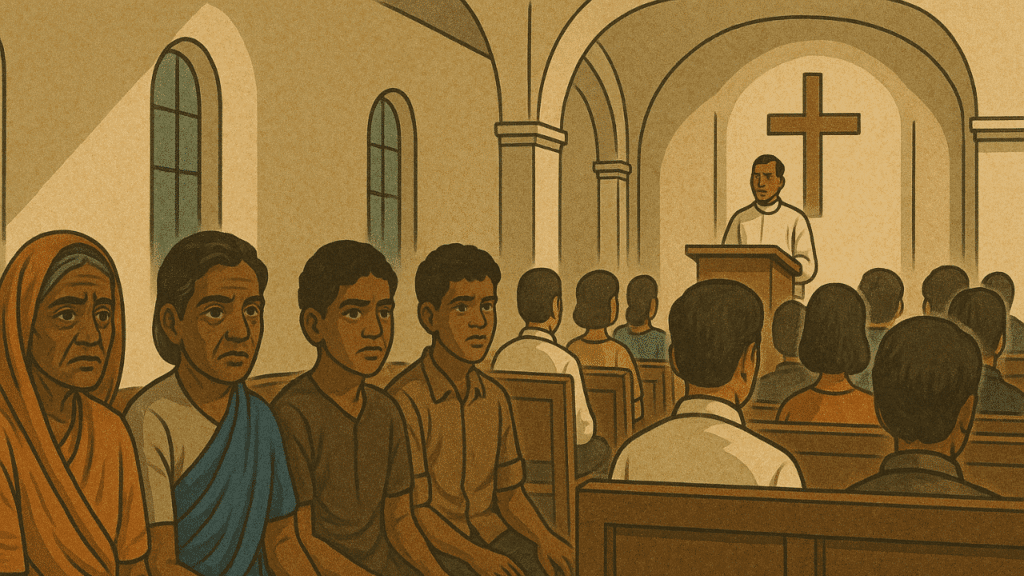
While most of the headlines in 2025 have focused on caste conflicts inside Catholic parishes, researchers and community leaders warn that the problem extends far beyond Rome’s fold. Pentecostal and Protestant churches across India, too, are wrestling with the shadow of caste.
Some local newspapers have described the phenomenon as “a pan-denominational crisis” rather than an isolated scandal. The New Indian Express reported in July 2025 that Dalit Christians in Trichy alleged discrimination not only in Roman Catholic festivals but also in independent congregations, where subscriptions and leadership roles are still reserved for dominant-caste families. Likewise, The Times of India has carried multiple reports in recent years on Dalit Pentecostals being seated separately during worship or being denied access to leadership committees.
Pastor Jomon Mathew from the Assemblies of God confirmed the persistence of such practices. When asked about his experience of witnessing a caste-based seating inside a Pentecostal church and how he felt about it, he struggled to hide his disappointment and sadness.
“I felt very sad. In Maharashtra, caste is a big issue in society, but inside the church, it should not exist,” he said, recalling the moment. “The church is a family of God. When people sit according to caste, it goes against the message of the Cross and against the Spirit of Pentecost. The Holy Spirit came for all people—not for one caste of one group. As a pastor, it hurt me to see the church copying the divisions of the world instead of showing the unity of Christ”
His concern echoes a sentiment shared by many within India’s Christian community who insist that Christianity preaches equality as its very heart. Citing scripture, Pastor Mathew explained that Jesus teaches oneness explicitly and vividly. “In John 17:21 Jesus prayed ‘that they may all be one.’”, he quoted from scripture.
“The Apostle Pual also says in Galatians 3:28 that there is no caste, no high or low, no difference, because we are all one in Christ. For us in Maharashtra, this means that whether someone is Maratha, Dalit, Adivasi, or from any community, in Christ all are equal. Our true identity is not in our caste, but in being children of God.”
Yet despite such clear teachings, the reality on the ground tells a different story. Some local newspapers have reported that cast-based practices continue ins churches across India. A 2023 report on Christian Today India, for example, noted that caste discrimination was a n issue in South Indian churches, with Dalit Christians often being segregated in seating or even barred from sharing a common chalice during Holy Communion. So what can be done? Pastor Jomon Mathew believes the solution lies in both teaching and example.
“Pastors should regularly preach that caste has no place in the church, in seat, communion, and fellowship meals, everyone must be treated the same. Leaders must respect and give opportunity to all, whether rich or poor, educated or uneducated,” he said. But beyond pulpit preaching, he stressed the power of visible unity: “The church should show unity to society. When people see Marathas, Dalits, Tribals, and others worshipping together in one spirit, they will see the true power of the gospel.”
The persistence of caste within Indian Christianity—whether Catholic, Protestant, or Pentecostal—poses a sobering question: Can the church truly embody the oneness it preaches while mirroring the societal divisions? Many regional and local newspapers this year and the previous years have shown that the problem is neither isolated nor historical; it is alive in 2025, quietly shaping where believers sit, who they marry, and who may lead.
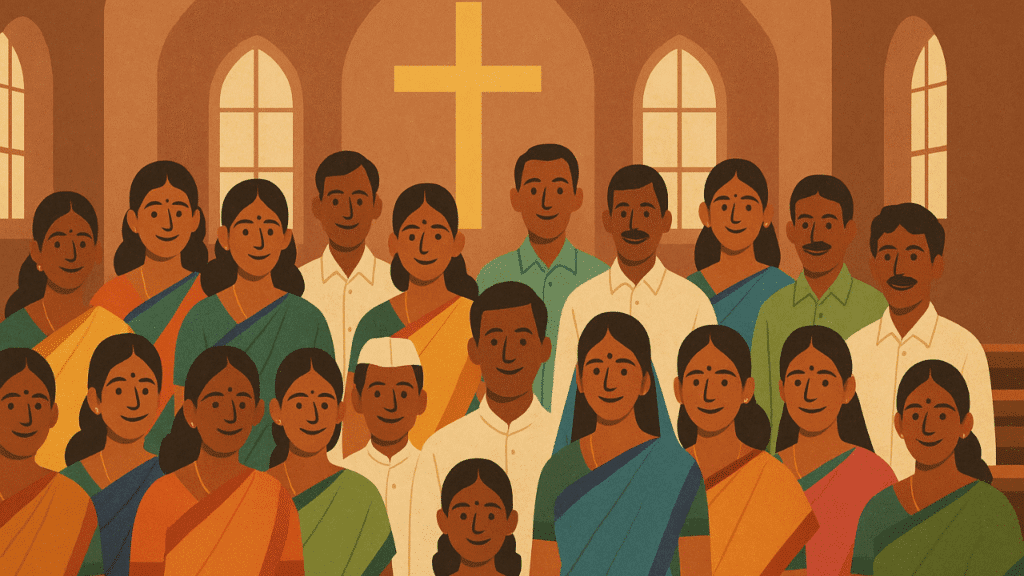
For Dalit Christians, the wound runs dee, not only because society marks them as lower, but because the very place meant to affirm their dignity sometimes denies it. For pastors and church leaders, it is an ongoing struggle between tradition and transformation. And for the wider church, it is a test of witness; whether the gospel’s radial message of unity can outshine centuries of entrenched social hierarchy.
As one Pentecostal pastor from Maharashtra put it, “The church must show the world that in Christ, caste has no place.” Until then, the pews will continue to speak a painful truth—that even in the house of God, division often sits closer than fellowship.
Vincent Katleho Makhate is a media researcher based in Mumbai, originally from Lesotho in Southern Africa. His work focuses on religion, media, and social justice, with a keen interest in how faith communities engage with issues of caste and equality in India.

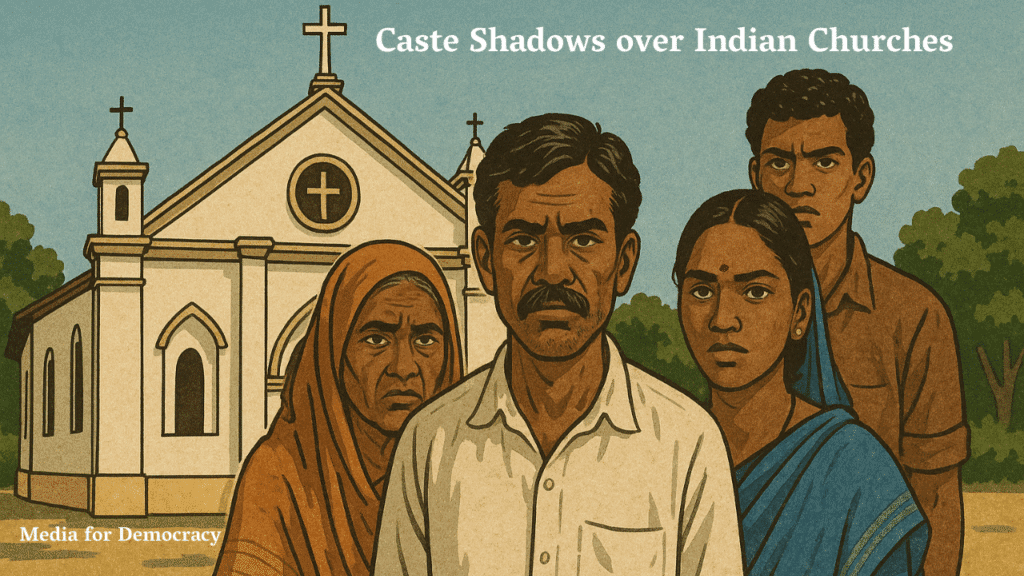
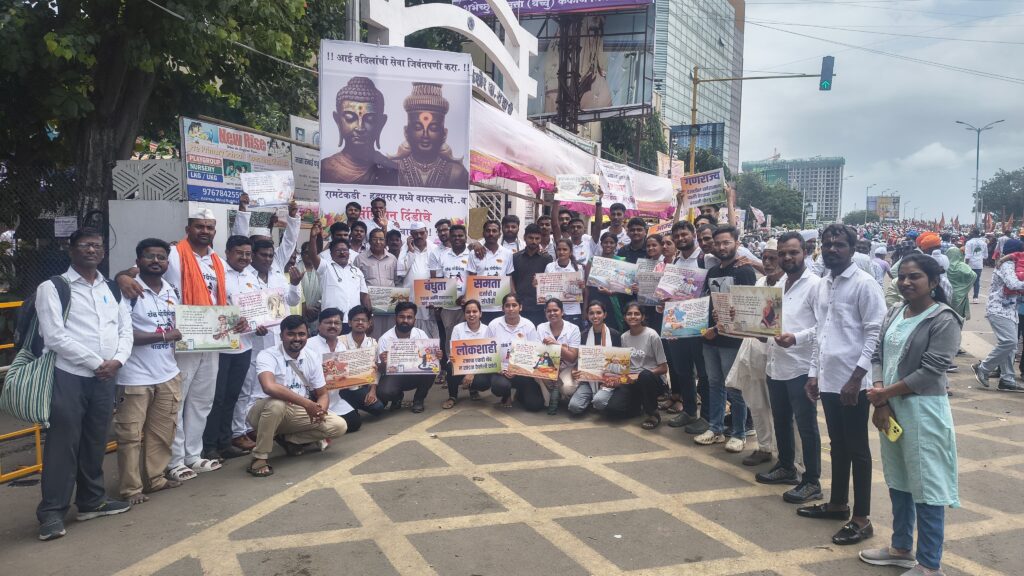
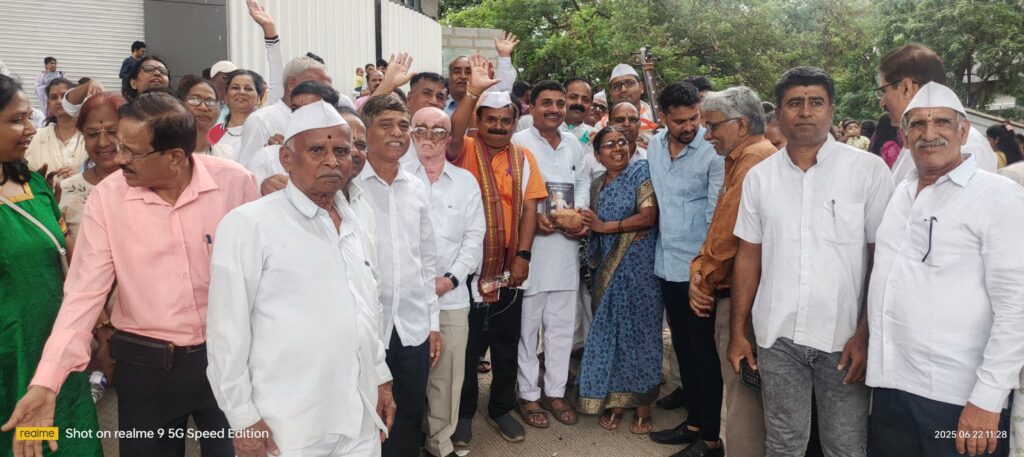
Hmm! What an insightful article, it opens my eyes to a different dimension of cultural- religion clashes that we couldn’t have known.
It is indeed an interesting article, thought provoking. Seeing that Transformation and Tradition are the key concepts that need to be well understood and not forced.